Erica Verrillo's Blog, page 78
September 22, 2015
24 Writing Contests in October - No entry fees - Children's books, poetry, essays, speculative fiction and more
 October welcomes writers with a bumper crop of writing contests. Two of the most prestigious awards for English language novels have deadlines this month: The Man Booker Prize for Fiction, and the PEN/Faulkner Award for Fiction.
October welcomes writers with a bumper crop of writing contests. Two of the most prestigious awards for English language novels have deadlines this month: The Man Booker Prize for Fiction, and the PEN/Faulkner Award for Fiction.In addition, there are contests for essays, poetry, short stories, emerging writers, established writers, young, and mature writers.
The most prestigious contests offer substantial prizes, but even a modest prize comes with the distinction of having won an award.
Good luck!
_____________________
CSO One City, One Symphony Freedom Poetry Contest is sponsored by the Cincinnati Symphony Orchestra. Restrictions: Open to legal residents of the states of Ohio, Kentucky, and Indiana enrolled in grades 9-12 or adults age 18 or older at time of entry. Genre: Poetry. Prize: $2,500 Grand Prize in each of two categories (Grades 9-12 and Adults 18+). Deadline: October 1, 2015. Read details here.
The Glenna Luschei Prize for African Poetry, sponsored by the African Poetry Book Fund and in partnership with the literary journal, Prairie Schooner, is the only one of its kind in the world and was established to promote African poetry written in English or in translation and to recognize a significant book published each year by an African poet. A standard edition is 48 pages or more in length. Genre: Open to any book of original poetry, in English, published during 2014 in a standard edition by a full-length collection of poetry. Restrictions: African nationals, African residents, or poet of African parentage with roots from any country, living anywhere in the world. Prize: USD $5,000. Deadline: October 1, 2015. Read details here.
In Cahoots Contest. Genre: Fiction. New collaborative work only. This means all submissions must be created by 2+ people. Prize: $50. Deadline: October 1, 2015. Read details here.
EssayMama Essay Writing Contest. Genre: Essay of 800 - 1300 words (topics on website). Prize: First prize $500, second prize $350, third prize $200. Winning essays will also be featured online on the EssayMama Blog. Deadline: October 1, 2015. Read details here.
The Man Booker International Prize for Fiction translated into English is awarded annually by the Booker Prize Foundation. Genres: Translated novel or collection of short stories published between January 1, 2015 and April 30, 2016. Prize: £50,000 divided equally between the author and the translator. There will be a prize of £2,000 for each of the shortlisted titles divided equally between the author and the translator. Deadline: October 2, 2015. Read details here.
Split This Rock: World & Me Youth Poetry Contest. Restrictions: Open to all youth in elementary, middle, and high school. Genre: Poetry. Deadline: October 3, 2015. Read details here.'
Barnes & Noble Discover Great New Writers Program. Restrictions: Authors making literary debut. Self-published works not allowed. Genres: Published or scheduled to be published fiction and literary nonfiction. Prize: $10,000 in each genre and in-store marketing/merchandising from Barnes & Noble. 2nd Place $5,000 in each genre, 3rd Place $2,500 in each genre. Deadline: October 8, 2015. Read details here.
American Antiquarian Society Fellowships for Creative Writers is calling for applications for visiting fellowships for historical research by creative and performing artists, writers, film makers, journalists, and other persons whose goals are to produce imaginative, non-formulaic works dealing with pre-twentieth-century American history. Successful applicants are those whose work is for the general public rather than for academic or educational audiences. The Society's goal in sponsoring this program is to multiply and improve the ways in which an understanding of history is communicated to the American people. Prize: A stipend of $1,150 to $1,350 and on-campus housing is provided; fellows residing off-campus receive $1,850. Deadline: October 5, 2015. Read details here.
Massachusetts Cultural Council Artist Fellowships. Restrictions: Poet must be resident of Massachusetts. Genre: Poetry. Prize: Pending approval by the MCC Board in early September, the fellowship award amount will be increased this year to $12,000 (from $10,000). The finalist award will remain at $1,000. Deadline: October 5, 2015. Read details here.
The NC State Short Story Contests. Restrictions: Open to all North Carolina residents except 1) tenured/tenure-track professors in the University of North Carolina system or 2) writers with a published book, 3) previous winners. Genres: An unpublished SHORT STORY of no more than 20 double-spaced pages; limit 5000 words OR an unpublished SHORT-SHORT FICTION story of no more than 5 double-spaced typed pages; limit 1200 words. Prizes: James Hurst Fiction Prize for the winning story is $500. There will also be some Honorable Mention awards. Prize for short-short is $250. Deadline: October 12, 2015. Read details here.
RRofihe Trophy. Genre: Unpublished short story. Minimum word count: 3,500; maximum to 5,000 words. Prize: $500, trophy, announcement & publication on anderbo.com. Deadline: October 15, 2015. Read details here.
Amy Lowell Poetry Traveling Scholarship. Restrictions: Poet must be born in the United States. Genre: Poetry. The sample must not exceed either (1) 40 typed pages or (2) one printed volume plus no more than 20 typed pages of your most recent work. There is no minimum page requirement. Prize: $54,000 for a year of travel and study abroad. Deadline: October 15, 2015. Read details here.
Kathy Fish Fellowship. Genre: Flash fiction. Restrictions: All writers previously unpublished in SmokeLong Quarterly and who do not have a published chapbook or book length work (or are not under contract for such) are eligible to apply. Prize: $500 and participation as a virtual "writer in residence" at SmokeLong for one year. Deadline: October 15, 2015. Read details here.
The Atlas Shrugged Essay Contest is open to 12th grade, undergraduate and graduate students. To be eligible for this contest, you must write an essay of no fewer than 800 and no more than 1,600 words in length, double-spaced, on one of three topics related to Ayn Rand's novel, Atlas Shrugged. Essays are judged on both style and content. The winning essay must demonstrate an outstanding knowledge of the book Atlas Shrugged. Prizes: 1st - $10,000, 2nd - $2,000, 3rd - $1,000. Also prizes for finalists, and semi-finalists. Deadline: October 23, 2015. Entry form and details here.
Arrowhead Regional Arts Council: Career Development Grants. Regional artists looking for support to take advantage of an impending opportunity should consider applying to this program. This grant program is designed to encourage artists to pursue enriching opportunities that address their artistic and career needs. Restrictions: Writers who are U.S. citizens and have lived in Aitkin, Carlton, Cook, Itasca, Koochiching, Lake, or St. Louis counties in northeastern Minnesota for at least six months are eligible. Genres: Poetry, fiction, and creative nonfiction. Prize: $3,000. Deadline: October 30, 2015. Read details here.
The Nancy Thorp Poetry Contest is sponsored by Hollins University. Restrictions: Open to young women who are sophomores or juniors in high school or preparatory school. Genre: Poetry. Prize: Up to $5,000 renewable annual Creative Talent Scholarship in creative writing if winner enrolls at Hollins. Free tuition and housing for the university’s Hollins summer creative writing program. $200 cash prize. Publication in Cargoes, Hollins’ award-winning student literary magazine. Ten copies of Cargoes. Deadline: October 30, 2015. Read details here.
The Marfield Prize, also known as the National Award for Arts Writing, is given annually by the Arts Club of Washington to nonfiction books about the arts written for a broad audience. Genre: Non-fiction book. Self-published books not accepted. Prize: $10,000. Deadline: October 31, 2015. Read details here.
PEN/Faulkner Award for Fiction is the most prestigious literary award in the US. Restrictions: Authors must be living American citizens. Self-published works not accepted. Genres: Novels, novellas, and collections of short stories. Prize: $15,000. Deadline: October 31, 2015. Read details here.
The Benjamin Franklin House Literary Prize. Restrictions: Entrants must be aged 18-25 years and living in the UK. Genre: Fiction and nonfiction. Each year a question or quote exploring Franklin’s relevance in our time is open for interpretation in 1000-1500 words. Prize: First prize of £750, second prize of £500. Winning entries will be posted on the website and also published online by The Telegraph. Deadline: October 31, 2015. Read details here.
Burt Award for Caribbean Literature. Restrictions: Caribbean authors age 12 through 18. Genres: Published books, previously self-published books, and unpublished manuscripts are eligible for the Award. Prize: First Prize of $10,000 CAD, a Second Prize of $7,000 CAD and a Third Prize of $5,000 CAD. Deadline: October 31, 2015. Read details here.
The Eric Gregory Awards. Restrictions: Applicants must be under 30 and a British subject by birth and must ordinarily be resident in the United Kingdom or Northern Ireland. Genre: Poetry collection. Previously published work accepted. Prize: £4,000.00. Deadline: October 31, 2015. Read details here.
McKitterick Prize. Restrictions: Open to authors over age 40 on December 31, 2015. Genre: First novel. The work must have been first published in the UK in the year in which the deadline falls (and not first published abroad), or be unpublished. Prize: £4,000.00. Deadline: October 31, 2015. Read details here.
Tom-Gallon Trust Award. Restrictions: Open to citizens of the United Kingdom, Commonwealth or the Republic of Ireland with at least one short story published or accepted for publication. Genre: Short story, maximum 5,000 words. May be unpublished. Prize: £1,000.00. Deadline: October 31, 2015. Read details here.
Lee & Low Books New Visions Award. Restrictions: Open to writers of color who are residents of the United States and who have not previously had a middle grade or young adult novel published. Genre: Middle grade or young adult novel. Prize: $1,000 and their standard publication contract, including their basic advance and royalties for a first time author. An Honor Award winner will receive a cash prize of $500. Deadline: October 31, 2015. Read details here.
Published on September 22, 2015 05:13
September 17, 2015
Income for Authors Plummets
 Whenever the economy contracts - and ours has definitely suffered a downturn - industries attempt to maintain their level of profit by any means necessary. That usually boils down to squeezing as much as possible out of their employees, while offering less in return. (After all, what CEO wants to give up their private jet?)
Whenever the economy contracts - and ours has definitely suffered a downturn - industries attempt to maintain their level of profit by any means necessary. That usually boils down to squeezing as much as possible out of their employees, while offering less in return. (After all, what CEO wants to give up their private jet?)"Let them eat cake"
Squeezing employees - that is, requiring more output while reducing their pay (and benefits) - has been the standard response to economic "corrections" since time immemorial. And, while writers may not feel that they fall in the category of "employee" they are certainly a resource that can be squeezed.
The Authors Guild, in their survey of 1,674 members, reports that since 2009 authors are feeling the crunch; 56% are now making below the poverty line. For a single person, the Federal Poverty Level is $11,770. For a household of two, it is $15,930, and for three it is $20,090. Most of the authors who answered the survey were older professionals (over the age of 50), so we may safely assume that many are married, and/or have children, which means nearly all of the respondents would fall below the poverty line.
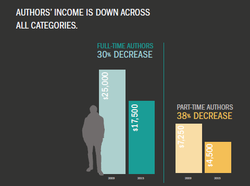 According to Publishers Weekly:
According to Publishers Weekly:"the median writing-related income among respondents dropped from $10,500 in 2009 to $8,000 2014 in 2014, a decline of 24%. The decline came for both full-time and part-time authors with full-time authors reporting a 30% drop in income to $17,500 and part-time authors seeing a 38% decrease, to $4,500."
Who is hit the hardest?
In keeping with the (unwritten) policy of squeezing employees, professional writers, even those with decades of experience, saw a substantial decline in income. While authors with 15 - 25 years of experience lost nearly half their income, those with 25 - 40 years of experience experienced a devastating 67% drop.
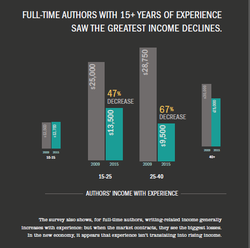 From the publishers' perspective, targeting experienced writers makes a certain amount of sense. Authors with track records are known quantities, and their income is something accounting departments can calculate against profits - just as the cost/benefit ratio of permanent employees can be calculated.
From the publishers' perspective, targeting experienced writers makes a certain amount of sense. Authors with track records are known quantities, and their income is something accounting departments can calculate against profits - just as the cost/benefit ratio of permanent employees can be calculated.This increases the vulnerability of authors with established incomes, as those expenditures can be slashed according to market projections.
For full-time writers the dramatic loss of income may mean having to take on a second job, or even a third, precisely at a time in their lives when they are least likely to be hired.
Retraining for other professions is also difficult for an older population, which means authors may have to take on low-paying menial jobs to make ends meet.
Working as a Walmart greeter is not something a writer expects after 20 years in the industry.
Shifting costs onto the shoulders of writers
Not only are publishers paying their authors less. writers are being asked to foot the bill for their own marketing, which allows publishers to cut publicity costs (and lay off marketing personnel).
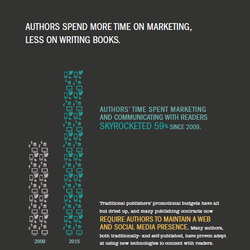 Publishing contracts increasingly include clauses that require authors to build and maintain online platforms to promote their work. Some even require potential first-time authors to have a substantial platform before publishing, a stance reflected in the wish-lists of agents. This is a near impossibility for writers who are just breaking into the field, and places an enormous time burden on them. Social media marketing is also, to a large extent, fruitless - unless you are famous.
Publishing contracts increasingly include clauses that require authors to build and maintain online platforms to promote their work. Some even require potential first-time authors to have a substantial platform before publishing, a stance reflected in the wish-lists of agents. This is a near impossibility for writers who are just breaking into the field, and places an enormous time burden on them. Social media marketing is also, to a large extent, fruitless - unless you are famous.In the past, publishers took on the responsibility of marketing and promotion, for which they maintained scores of publicists. The media connections large houses maintained served to offset some of the disadvantages of signing on with a traditional publisher - namely low royalty rates.
Is self-publishing a way out?
The appeal of self-publishing for established authors is obvious. Writers with upwards of 15 years under their belts have experience, not just as writers, but with the industry. They know how the system works. They also have fans. There is no substitute for a loyal following, and any author with a fan base has a distinct advantage over a newcomer - even if both are launching websites, twitter accounts, and social marketing campaigns at the same time.
Fully one-third of the professional writers who took the Guild survey had self-published a book. The attraction of self-publishing has increased exponentially, not only because incomes have dropped, but because alongside the economic contraction, publishers are becoming less supportive of authors. In concrete terms, this means that publishers are imposing restrictions on authors' creativity in order to align their work more closely with what the publisher believes will sell. Publishers base those beliefs not on new, interesting ideas, but on what has sold in the past. No one with an ounce of creativity wishes to be restricted to following the well-worn tracks of previous authors.
What does this mean for new writers?
One of the most attractive things about being a writer is that for the majority of those who take pen in hand (metaphorically, at this point), income is not the motivating factor. People write because: 1) they have a romantic ideal in their head about the thrill of being an author, 2) they really must get a message out to the rest of the world, 3) they like to write. Few anticipate having a meteoric rise to fame and fortune. (Nor should they wish it. Nothing kills a young writer's career faster than early fame.)
Taking into account the dismal findings of the Authors Guild survey, writers must be realistic about their prospects. If publishers continue to cut back on what they offer writers, self-publishing may be the only viable option. Even if new writers don't make a lot of money from their self-published work, at least they don't have a publisher insisting that they cut whole chapters, remove any word longer than two syllables, or rewrite their characters to make them more appealing to 12-year-olds (all of which has happened to me).
There are other options, of course. Forming coops is one of them. Writers who band together have greater chance of success than when each one attempts to make it on his or her own. The cooperative model is one that has existed for decades in other areas of business, why not publishing?
What is abundantly clear from the Authors Guild survey is that something has to be done. Writers are indeed a resource, not just for the industry that profits from them, but for everyone. By reducing authors to penury, we are all the poorer.
Published on September 17, 2015 08:00
September 15, 2015
Hold on to Your Copyright!
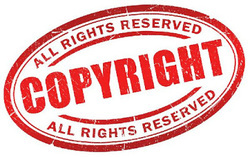 Copyright is one of the few legal protections offered to writers, yet surprisingly few writers take advantage of this safety net. Many writers assume that once they have written something it is automatically copyrighted.
Copyright is one of the few legal protections offered to writers, yet surprisingly few writers take advantage of this safety net. Many writers assume that once they have written something it is automatically copyrighted.Technically, that assumption is correct. Anything you create is copyrighted, but unless you register your work with the U.S. Copyright Office you will never be able to defend your claim. If someone steals your work, you are free to take legal action, but judges like to see formal proof of intellectual property rights.
As far as the courts are concerned, simply claiming ownership does not confer it. Sending yourself a manuscript in the mail, and leaving it unopened, does not qualify as proof that you wrote it. It only proves that someone wrote it.
What is copyright?
Copyright is legal protection for any expressive work, published or unpublished, that appears in tangible form: books, articles, screenplays, dramatic works, poetry, images, songs, software, and architecture all fall under the umbrella of copyright. Work that appears online - your blog, let's say - can also be copyrighted. Having a copyright gives you legal grounds to sue someone who plagiarizes your work.
Your rights as the owner of any expressive work include reproduction, distribution, display, performance, and adaptation. As owner, you may assign or sell some (or all) of those rights either temporarily or permanently. While it is best to copyright your work as soon as it is finished, you can copyright any intellectual work within five years of its creation.
What can't be copyrighted?
Titles cannot be copyrighted, nor can names (including domain names), slogans, or taglines (although these can be covered under a Trademark). News items and historical facts are not covered. Likewise, ideas cannot be copyrighted.
After the publication of Dan Brown's The Da Vinci Code, two authors, Michael Baigent and Richard Leigh, sued Random House claiming "non-textual infringement in a literary work." The basis for the suit was a nonfiction book they, along with a third author, had published in 1982, The Holy Blood and the Holy Grail, in which they proposed that Jesus and Mary Magdalene were married and had produced a child, and that a secret society protects their descendants from the Catholic church. While this is remarkably close to Brown's book, and, may in fact have been the source of his central premise, the lawsuit failed because copyright only extends to the expression of an idea, not the idea itself.
Author Lewis Perdue also sued Random House on similar grounds, claiming that Dan Brown had plagiarized characters from two of his novels. He lost as well. Characters, like premises, are ideas.
Cost
The fee for registering a copyright is $85 (which is more than quadruple what it was when I registered my first copyright). Authors who are used to doing things on the cheap may balk at the expense, but it is well worth it. Even if you spend nothing else on your work, spring for registering your copyright.
What to do when a publisher wants to copyright your work
Unless a publisher specifies that the book will be copyrighted in your name (and offers to send you proof), do not give your copyright to a publisher.
My first book was published by a small publishing house, the owner of which sent me what she called a "boilerplate" contract. (There is no such thing. All contracts are negotiable.) One of the clauses stated that the publisher would hold the copyright of my book. I balked, although I wasn't sure what the details of copyright were, and refused to sign the contract. Reluctantly ("Oh, all right.") the publisher agreed. Years later, when the book had gone out of print, I hired a lawyer to restore my rights. (Had the out-of-print clause been better worded I would not have needed a lawyer, but that's a topic for another post.)
Subsequently, I self-published a second edition, which sold significantly more copies than the first edition. Had I given up my copyright, a second edition probably would not have been published, and the book would simply have died.
How publishers undermine your copyright
While most publishers are happy to give copyright to their authors, securing rights for the duration of the copyright in effect gives publishers a de facto copyright. Authors Guild has objected to this practice, stating in its Fair Contract Initiative:
"There’s no good reason why a book should be held hostage by a publisher for the lifetime of the copyright, the life of the author plus seventy years—essentially forever. Yet that’s precisely what happens today. A publisher may go bankrupt or be bought by a conglomerate, the editors who championed the author may go on to other companies, the sales force may fail to establish the title in the marketplace and ignore it thereafter, but no matter how badly the publisher mishandles the book, the author’s agreement with the original publisher is likely to remain in effect for many decades."
The Authors Guild has proposed three changes: (1) time-limited contracts, (2) a clause that provides for reversion of unexploited rights, and (3) a specific new unchallengeable definition to replace historic “out of print” clauses that are not remotely relevant in the electronic age. While publishers may be reluctant to issue time-limited contracts, the second and third suggestions are not only possible, they were part of my contract with Random House, which means they can be included any contract.
With shorter works, such as short stories, no literary magazine should ask for rights for the length of the copyright. Literary magazines typically ask for first North American serial rights, which gives them permission to publish your story first in North America only. Rights to short stories usually revert "upon publication." If the literary magazine also publishes a yearly anthology they may require an extension of those rights for up to a year. Any longer than that is not reasonable. Because short stories published in literary journals have a short shelf-life, rights that last for the length of the copyright effectively prevent authors from keeping their stories alive through reprints and collections.
Copyright for news pieces is often owned by news media under "work for hire" stipulations. But this is not the case for literary magazines, unless you are expressly hired to produce work for the publication. Being paid for an original short story or nonfiction piece that you have submitted, or receiving an advance, does not constitute work for hire.
Can someone else quote what you have copyrighted in their own work?
The simple answer to that question is yes. Anyone can quote what you have copyrighted, provided that it is in a different context. This is called "fair use." (Fair use stipulations are located in Section 107 of the Copyright Act.)
A good example of fair use is when a reviewer or journalist excerpts portions of your novel. Because the context has changed, your work has now been "transformed." For non-fiction, any scholar or researcher can quote your work in the context of a book or article discussing similar material. Teachers can also make copies of your work to use in a classroom.
Contrary to popular belief, there is no set amount - 10%, 20%, 30% - that constitutes fair use. What is important is not the quantity, but how it is used. As long as the context has been changed your work can be quoted. Because fair use falls under the First Amendment right to free speech, permission from the copyright holder is not required.
Do this now
Don't wait until you have finished your book to find out about copyright protection. Go to copyright.gov and read their FAQs. In spite of their plethora of circulars - which rival the IRS in sheer quantity of excess verbiage - registering a copyright is fairly straightforward: You pay the fee, and you send them your work. They then send you a certificate of copyright, which you will keep in a safe place.
Always copyright your books! If you don't, you will have no protection against intellectual property theft - a practice which, sadly, is rife in the publishing industry. If you send material to beta readers or to reviewers before publication make sure you have added a copyright notice.
Published on September 15, 2015 07:21
September 11, 2015
10 Awards for Self-Published Books
 Among the many awards for self-published books, there are few that are worth winning. The majority of self-published book awards don't confer any benefit to the author, other than a seal that winners often must pay for. And many of these contests are run by media groups that use them as a way to drum up business.
Among the many awards for self-published books, there are few that are worth winning. The majority of self-published book awards don't confer any benefit to the author, other than a seal that winners often must pay for. And many of these contests are run by media groups that use them as a way to drum up business.That being said, there are a few contests that are not only prestigious, but offer considerable prizes to the winners, either in terms of cash or publicity. I have listed 10 of the most worthwhile below.
With two exceptions all of these contests charge a fee, although in most cases the fees are reasonable (under $100).
While cash awards are always appreciated, as is the publicity generated by awards ceremonies, these benefits are fleeting. Before you enter any contest, make sure you have a long-term plan in place - just in case you win. How will you make good use of your award? Will you order gold seals to affix to your book cover (if it is in print)? Do you have a press release in place to announce your prize to local media? How about researching opportunities for talks given by an "award-winning author"? Even if you don't think you stand a chance of getting an award, when it comes to marketing and promotion, it is always a good idea to plan ahead.
____________________
Axiom Awards. Authors and publishers throughout North America and overseas publishers who publish English-language business books with a 2014-2016 copyright or that were released between June 2014 and December 2015, and that are intended for the American market may enter. Print-On-Demand and other independent authors are welcome to enter their books themselves. Genre: Business books. Entry fee: $85 per title, per category, until October 24. $95 from October 25-December 12. Deadline: December 12, 2015.
The Benjamin Franklin Awards are administered by the Independent Book Publishers Association (IBPA) with help from over 150 book publishing professionals including librarians, bookstore owners, reviewers, designers, publicity managers, and editors. The Benjamin Franklin Awards are unique in that all entrants receive direct feedback on their entries. The actual judging forms are returned to all participating publishers. Indie publishers and self-published authors are invited to enter the next competition for books with a copyright date of 2015. Genre: Any. Prize: Announcement to major trade journals (including Publishers Weekly and Book Business), to select public libraries, through all IBPA social media channels, including Facebook, Twitter, the IBPA Blog. Entry fee: IBPA member – $95 per title, per category. Non-IBPA member – $225 for first title, which includes one year’s membership in IBPA; $95 per title, per category for second and subsequent entries. Deadlines: FIRST CALL—SEPTEMBER 30, 2015 - Primarily for titles published January 1 – August 31, 2015: SECOND CALL— DECEMBER 15, 2015 - Primarily for titles published September 1 – December 31, 2015.
The Book Designer: Monthly e-Book Cover Design Awards. Aside from the fact that there is no fee for entering this contest, Joel Friedlander's site gets a substantial amount of traffic. Genre: Any Indie book cover. Entry fee: None. Deadline: Revolving.
Eric Hoffer Award. The Eric Hoffer Book Award is one of the largest international book awards for small, academic, and independent presses. Anyone (including the author) can submit one or more books for the Eric Hoffer Award. Printed, e-books, and chapbooks are accepted. Genre: Any. Prize: $2,000 grand prize and various category honors and press type distinctions, as well as the winners of the Montaigne Medal, da Vinci Eye, and First Horizon Award. The book awards are covered independently by the US Review of Books. Entry fee: $55 (chapbooks $40). Deadline: January 21st of the award year.
IACP Cookbook Awards Details to be announced on September 14, 2015.
Independent Publisher Book Awards. All independent publishers are eligible, ranging from self-published authors to major university presses. About 2,400 publishers participate in the Awards each year, from every U.S. state, Canada, and English-speaking countries overseas around the world. The 2015 IPPY Awards attracted 5,700 total entries; winners came from 45 U.S. states plus the District of Columbia, six Canadian provinces, and ten countries overseas. Genre: Any. Prize: IPPY Award entrants have four ways to win: the National, Regional, E-Book and Outstanding Books of the Year (which all entrants are considered for with no extra fee). Award winners are headlined on Independent Publisher, and are featured prominently in articles in their monthly newsletter, which goes out to over 15,000 subscribers worldwide, many of whom are agents, buyers, and librarians. Entry fee: $75.00 per category. Deadline: February 27, 2016.
The Next Generation Indie Book Awards. Not-for-Profit book awards program for indie authors and independent publishers. In its ninth year of operation, the Next Generation Indie Book Awards was established to recognize and honor the most exceptional independently published books in over 70 different categories, for the year, and is presented by Independent Book Publishing Professionals Group (www.IBPPG.com) in cooperation with Marilyn Allen of Allen O'Shea Literary Agency. Open to all indie publishers including independent publishers (small, medium or otherwise), university presses, self-published authors, e-book authors, seasoned authors and even first time authors based in the U.S., Canada or internationally who have a book written in English and released in 2014, 2015 or 2016 or with a 2014, 2015 or 2016 copyright date. Genre: Any. Prize:
$1,500 Cash Prize and trophy awarded to the best Fiction Book$1,500 Cash Prize and trophy awarded to the best Non-Fiction Book$750 Cash Prize and trophy awarded to the second best Fiction Book$750 Cash Prize and trophy awarded to the second best Non-Fiction Book$500 Cash Prize and trophy awarded to the third best Fiction Book$500 Cash Prize and trophy awarded to the third best Non-Fiction Book$100 Cash Prize and a Gold Medal awarded to the winner of each of the 70 categoriesFinalist Medals will be awarded to up to five finalists in each of the 70 categoriesEntry fee: Early Bird Special Entry Fee is $75 and includes the entry of one title in two categories. On October 1, 2015 the price to enter two categories increases by $50. Deadline: February 12, 2016.
Shelf Unbound. Shelf Unbound book review magazine reaches more than 125,000 readers in the U.S. and in 65 other countries around the globe. Genre: Any. Prize: The author of the book named as the Best Independently Published book will receive $500, a year's worth of full-page ads in Shelf Unbound, and editorial coverage in the December/January 2016 issue of Shelf Unbound. Five finalists will receive editorial coverage in the December/January 2016 issue of Shelf Unbound. More than 100 books deemed by the editors as "notable" entries in the competition will also be featured in the December/January 2016 issue. Entry fee: $40 per title. Deadline: October 1, 2015.
Spark Award. Sponsored by the Society for Children's Book Writers and Illustrators. Genre: Children's book. Prize: The winner and honor recipients will receive: a Spark seal to display on their book; commemorative plaque; the opportunity to have their book featured and autographed at an SCBWI conference of their choosing during the year the award is won, featured in the SCBWI online bookstore and publicized through SCBWI social networking sites. The winners will also get the opportunity to attend any conference of their choice tuition free (other than for extras such as critiques and intensives). Entry fee: No fee. Deadline: December 1, 2015 for books published in the 2015 calendar year. Do not enter before September 15, 2015.
Writer’s Digest is holding its 3rd Annual Self-Published e-Book Awards–a competition that spotlights today’s self-published works and honors self-published authors. Prizes:
One Grand Prize winner will receive:
$5,000 in cashA feature article about you and your book for the May/June 2016 issue of Writer’s DigestWinner’s name on the cover of Writer’s Digest magazine (subscriber issues)A paid trip to the ever-popular Writer’s Digest Conference!30-minute platform & marketing consultation with Chuck Sambuchino, author of Create Your Writer Platform$200 worth of Writer’s Digest booksOne year Subscription (new or renewal) to Writer’s Digest magazineOne First Prize winner in each category will receive:
$1,000 in cashPromotion in the May/June 2016 issue of Writer’s Digest$100 worth of Writer’s Digest booksOne year Subscription (new or renewal) to Writer’s Digest magazineEntry fee: First entry—$110. Each additional entry—$85. Deadline: September 21, 2015
Published on September 11, 2015 08:21
September 3, 2015
3 Literary Agents Actively Seeking New Clients
Here are three agents actively seeking new clients. John Cusick (Folio) is looking for MG and YA. He is seeking author/illustrators and artists as well. Matthew DiGangi (Bresnick Weil Literary Agency) is seeking American history, sports, politics, weird science, food, pop/alternative culture, and video games. Sue Miller (Donaghy Literary Group) is looking for Young Adult (all genres), Literary, Upmarket and Commercial Fiction, and character-driven Romance (all subgenres).
____________________
 John Cusick of Folio Literary Management
John Cusick of Folio Literary Management
About John: John is an established agent who formerly worked for Greenhouse Literary. He has just become part of Folio Literary Management/Folio Jr. and is actively seeking new clients. John M. Cusick is the author of GIRL PARTS and CHERRY MONEY BABY (2010 and 2013, Candlewick Press), as well as a regular speaker at writers conferences. His clients include New York Times bestselling author Tommy Wallach (WE ALL LOOKED UP, March 2015, Simon & Schuster), Courtney Alameda (SHUTTER, February 2015, Feiwel & Friends) and Hannah Moskowitz (A HISTORY OF GLITTER AND BLOOD, August 2015, Chronicle Books) You can find him online and on Twitter, @johnmcusick.
What he is seeking: Middle-grade and teen audiences. He loves contemporary realism, fantasy, realistic stories with a fantastical twist, and really anything with imagination and heart. He works with first-time authors as well as veteran writers, and am always on the prowl for fresh voices. He is seeking author/illustrators and artists as well.
How to submit: Full submission guidelines can be found at http://www.foliojr.com/john-cusick/
____________________
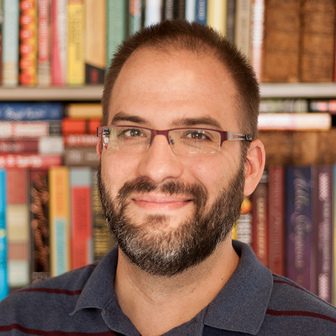 Matthew DiGangi of Bresnick Weil Literary Agency
Matthew DiGangi of Bresnick Weil Literary Agency
About Matthew: Matthew is the newest member of the Bresnick Weil Literary Agency. He is one of only a handful of literary agents in Boston. With ten-plus years of publishing experience under his belt, he’s edited, anthologized, and published many books across many platforms. Matt has a BFA in English & Textual Studies from Syracuse University and an MA in Publishing & Writing from Emerson College. Find him on Goodreads for a sense of his taste in books, or Twitter for a taste of his sense of humor.
What he is seeking: Matt is looking unforgettable characters, unpredictable plots, and prose that really hums. For nonfiction, he wants original research and journalistic instinct. Subjects include but are not limited to music, American history, sports, politics, weird science, food, pop/alternative culture, and video games. Matt does not represent YA, middle grade, or books for children.
How to submit: E-query matt [at] bresnickagency.com. For fiction, include first two chapters. For nonfiction, include a complete proposal. Full submission guidelines here.
___________________
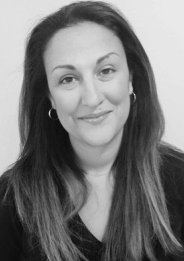 Sue Miller of Donaghy Literary Group
Sue Miller of Donaghy Literary Group
About Sue: Sue Miller is an Associate Agent at Donaghy Literary Group, with a special love for young adult books, fantasy and literary fiction. Her publishing career began in Toronto working with Fidalgo Books in PR and in sales at Scholastic Canada. This quickly progressed into literary consultations with published and unpublished authors who sought her penchant for preparing a body of work to be submission and publication ready. She has also prepared numerous social media marketing strategies centered on specific author branding. She holds a BA in English from York University along with a Publishing Certificate from Ryerson University. She is delighted to be a part of the Donaghy Literary Group, which mirrors her belief in the importance of results driven, quality and sincere author representation.
What she is seeking: Young Adult (all genres), Literary, Upmarket and Commercial Fiction, character-driven Romance (all subgenres).
How to submit: Sue is currently accepting queries through the Donaghy Literary Group submissions page. Please follow the submission guidelines on the DLG website.
____________________
 John Cusick of Folio Literary Management
John Cusick of Folio Literary ManagementAbout John: John is an established agent who formerly worked for Greenhouse Literary. He has just become part of Folio Literary Management/Folio Jr. and is actively seeking new clients. John M. Cusick is the author of GIRL PARTS and CHERRY MONEY BABY (2010 and 2013, Candlewick Press), as well as a regular speaker at writers conferences. His clients include New York Times bestselling author Tommy Wallach (WE ALL LOOKED UP, March 2015, Simon & Schuster), Courtney Alameda (SHUTTER, February 2015, Feiwel & Friends) and Hannah Moskowitz (A HISTORY OF GLITTER AND BLOOD, August 2015, Chronicle Books) You can find him online and on Twitter, @johnmcusick.
What he is seeking: Middle-grade and teen audiences. He loves contemporary realism, fantasy, realistic stories with a fantastical twist, and really anything with imagination and heart. He works with first-time authors as well as veteran writers, and am always on the prowl for fresh voices. He is seeking author/illustrators and artists as well.
How to submit: Full submission guidelines can be found at http://www.foliojr.com/john-cusick/
____________________
 Matthew DiGangi of Bresnick Weil Literary Agency
Matthew DiGangi of Bresnick Weil Literary AgencyAbout Matthew: Matthew is the newest member of the Bresnick Weil Literary Agency. He is one of only a handful of literary agents in Boston. With ten-plus years of publishing experience under his belt, he’s edited, anthologized, and published many books across many platforms. Matt has a BFA in English & Textual Studies from Syracuse University and an MA in Publishing & Writing from Emerson College. Find him on Goodreads for a sense of his taste in books, or Twitter for a taste of his sense of humor.
What he is seeking: Matt is looking unforgettable characters, unpredictable plots, and prose that really hums. For nonfiction, he wants original research and journalistic instinct. Subjects include but are not limited to music, American history, sports, politics, weird science, food, pop/alternative culture, and video games. Matt does not represent YA, middle grade, or books for children.
How to submit: E-query matt [at] bresnickagency.com. For fiction, include first two chapters. For nonfiction, include a complete proposal. Full submission guidelines here.
___________________
 Sue Miller of Donaghy Literary Group
Sue Miller of Donaghy Literary GroupAbout Sue: Sue Miller is an Associate Agent at Donaghy Literary Group, with a special love for young adult books, fantasy and literary fiction. Her publishing career began in Toronto working with Fidalgo Books in PR and in sales at Scholastic Canada. This quickly progressed into literary consultations with published and unpublished authors who sought her penchant for preparing a body of work to be submission and publication ready. She has also prepared numerous social media marketing strategies centered on specific author branding. She holds a BA in English from York University along with a Publishing Certificate from Ryerson University. She is delighted to be a part of the Donaghy Literary Group, which mirrors her belief in the importance of results driven, quality and sincere author representation.
What she is seeking: Young Adult (all genres), Literary, Upmarket and Commercial Fiction, character-driven Romance (all subgenres).
How to submit: Sue is currently accepting queries through the Donaghy Literary Group submissions page. Please follow the submission guidelines on the DLG website.
Published on September 03, 2015 04:40
August 31, 2015
13 Calls for Submissions September 2015
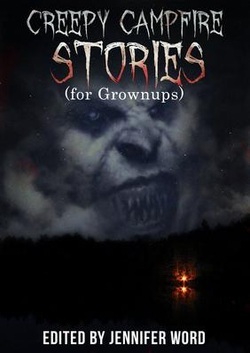 Fall is a great time for submissions. Calls for submissions for the month of September span the gamut from terrifying campfire stories to personal essays, from care taking for cancer patients, to retelllings of fairy tales.
Fall is a great time for submissions. Calls for submissions for the month of September span the gamut from terrifying campfire stories to personal essays, from care taking for cancer patients, to retelllings of fairy tales.All of these are paying markets.
Good luck!
____________________
'Monster Waiting in the Woods’ Anthology. Emby Press is seeking submissions for a new anthology titled Monster Waiting in the Woods. "Scare the hell out of us with any monster you like, although I will be especially interested in original monsters. Then keep the tension screwed tight and the terror dial on high. Set the stories anywhere - the “woods” in the title are only a possibility."
Genre: Horror, sci-fi, dark fiction
Length: 2000 to 8000 words. Please query if longer.
Payment: $25
Deadline: September 1
____________________
Creepy Campfire Stories for Grownups. This anthology will contain timeless tales of extreme horror campfire stories for adult readers (over 18 years old). "ALL horror is welcome, including ALL sub-genres (science fiction, speculative, magical, fantasy, paranormal, supernatural, psychological, historical, Urban Legend, Original Creepy Pasta, mystical, Occult and extreme). All stories submitted must be original and previously unpublished. We will accept reprints, but if accepted, author must sign a contract stating that the reprinted story's copyright belongs to them."
Length: Word limit is 6,000 (hard), and minimum is 1,500
Genre: Horror
Payment: 4 cents per word, up to a flat rate of $240 per story, plus two contributor’s copies.
Deadline: September 1
____________________
‘Witches, Warlocks, Demons, & Evil Doers’ Anthology. Sirens Call Publications, a small press publisher of edgy fiction, is seeking horror/supernatural stories for an upcoming anthology. "We are looking for stories that tell of wrong doings perpetrated by someone or something with supernatural abilities. We are not looking for stories of werewolves or vampires who need to survive by causing harm. What we want are stories of choice; stories where the protagonist chooses to do harm for a specific reason through means of a power beyond that of a normal mortal."
Length: 4K-8K words.
Payment: $25/story.
Deadline: September 1
____________________
Timeless Tales exclusively publishes retellings of fairy tales and myths. "We only accept stories that are retellings of the fairytale or myth listed as our theme. We don't accept original fairy tales or stories outside of our current theme."
Theme: "Baba Yaga"
Length: Up to 2,000 words. Under 1,500 preferred.
Deadline: September 4
____________________
Liminoid Magazine. "Our mission is to publish unique fiction that's on the cusp: neither here nor there, unbound by convention or genre expectations."
Length: Fiction must be at least 500 words long, but no longer than 10,000 words.
Payment: $20/published piece
Deadline: September 10
____________________
Eye to the Telescope is the flagship ezine of the Science Fiction Poetry Association.
Genre: Speculative poems that deal with the idea of race in a number of different ways. Poets can submit up to five poems. Poems must be original and unpublished.
Payment: 3 cents/word–$3 minimum or $25 maximum—for First (or Reprint) Electronic Rights. Payment is upon publication.
Deadline: September 15
___________________
Fine Linen Magazine, a print literary journal mailed to members, is reading for its next quarterly issue (Autumn 2015 issue) to be published September 15, 2015.
Genre: Well-plotted, swift-paced flash fiction, between 200 and 700 words.
Payment: 5 cents per word
Deadline: September 15
____________________
Giants & Ogres Anthology. "CBAY Books is pleased to announce an open submission period for the upcoming YA anthology Giants & Ogres, a collection of stories featuring these classics villains from fairy tales. Like in our previous anthology, Stepmothers & the Big Bad Wolf, we are looking for stories that show these villains in new and unusual ways. Retold fairy tales are welcome, but we are also looking for tales that feature these characters in new and interesting lights. We will be selecting 5 giant stories and 5 ogre stories."
Genre: Genre: Fantasy and Science Fiction for ages 13-18 featuring a main character of either a giant or an ogre
Length: 5,000 words
Payment: $30/story
Deadline: September 18
____________________
Capricious, a new magazine of literary speculative fiction and commentary, will debut its first issue this September.
Genre: Literary and experimental fiction, as well as non-fiction essays about speculative fiction. "We err towards the literary/experimental/slipstream side of speculative fiction, but appreciate a strong plot and kickass characters as much as anyone. Fiction which explores the relationship between an environment and its inhabitants is particularly welcome. We’re very open to stories told in second person, with unusual tenses, or other less common language choices, as long as they’re a good fit for the story. We’re particularly interested in stories from writers in the Asia-Pacific region, stories about disability that avoid the usual tropes, and thoughtful explorations of gender (and hell yes gender neutral pronouns are more than ok)." In the nonfiction category, the magazine will publish essays that explore themes and characteristics of speculative fiction.
Length: 3K-5K words per story.
Payment: $50 per story or essay.
Deadline: Not indicated.
____________________
Western Art & Architecture is a bi-monthly magazine that "celebrates America's love affair with the Western visual arts. From the classic Western masters to contemporary trendsetters, Western Art & Architecture magazine features the best in art and architecture from Texas to the West Coast." Now accepting queries for their Feb/March 2016 issue.
Length: 500 to 1,500 words.
Payment: 50 cents/word for articles, and $50-$185/photo.
Deadline: September 24
____________________
Your Workplace is a Canadian magazine covering leadership and work-life issues. They are currently seeking articles for their Nov/Dec 2015 issue. Topics include background and context to ongoing national workplace issues, a challenge to mainstream perspectives, or an important story that hasn’t been told elsewhere. Readers include executives, leaders and employees in dynamic organizations.
Length: from 600 to 2,500 words for feature articles, including sidebars and/or visuals.
Payment: starts at 25 cents per word and increases depending on the type and topic of the article and the writer’s background.
Deadline: September 24
____________________
Chicken Soup for the Soul is publishing an anthology about “Angels and Miracles.” “We’re looking for stories about angels, miracles, answered prayers, messages from heaven, and all your other awe-inspiring experiences, whether religious or non-religious. We are looking for stories of true wonder and inspiration – things that have happened to you and your friends and family – things that are hard to explain, but really happened! Share the awe, the faith, and the wonder with our readers. And just a note – we are not looking for stories about people who are “angels” because they do nice things or for eulogies about loved ones who are now angels.”
Length: up to 1200 words. Poetry: open line count.
Payment: $200 per story or poem, plus 10 contributor’s copies. Authors retain the copyright to their stories.
Deadline: September 30
____________________
How to Help is looking for creative non-fiction essays telling well-crafted, heartfelt stories detailing how people have meaningfully aided you as a cancer patient, and what you have found most valuable in terms of support in your time of sickness. "We will also accept profound essays from caregivers or those in the cancer industry with a great story to tell along these lines. Consider these questions as prompts: How can people who love you help you as a cancer patient? What have people done in the past that touched you? What did you wish people would do? What did people say that made you feel better? What did you wish people wouldn’t say? What have you done as a caregiver that was meaningful and helpful and heartfelt?"
Length: under 3K words per story.
Payment: $150 per story upon publication plus a copy of the book
Deadline: September 30
Published on August 31, 2015 09:11
August 27, 2015
How to Set the Price for Your Novel
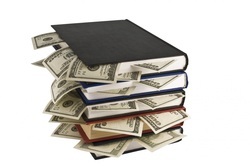 If you are self-publishing, setting a price for your novel can be daunting. Do you set the price as low as possible in order to garner the most readers, or do you set a higher price in hopes that you will make some money for your labors? And if you do set a higher price in hopes of gaining an income, what is reasonable?
If you are self-publishing, setting a price for your novel can be daunting. Do you set the price as low as possible in order to garner the most readers, or do you set a higher price in hopes that you will make some money for your labors? And if you do set a higher price in hopes of gaining an income, what is reasonable?In this highly informative Huffington Post article, "Setting the Price for Your Novel -- What You Need to Know," Kristen Houghton lays out exactly how to price your novel. She also talks about discounts, how retail prices are calculated, and a lot of other factors that can affect the price of a book.
If you want to know which price gets the best performance in terms of maximizing readers and sales, Written Word Media has done an analysis. According to Written Word, if your only goal is to maximize the number of readers you acquire:
$0.99 is the most effective price point.$1.99 is not far behind.If your only goal is to maximize revenue on the day of a promotion:
Price your book at $4.99.You will acquire far fewer readers, but generate the most revenue. And if you want to achieve both goals
but value acquiring new readers more than maximizing revenue, go for $1.99.but want to maximize revenue more than you want to acquire new readers, price your book at $2.99.There is no simple formulafor how to price your book, but between these two articles, you should get a good idea of how pricing works in real terms.
______________________________
Setting the Price for Your Novel -- What You Need to Know
By Kristen Houghton
Think you know all about publishing your book? The writing, the edits, etc., sure. But there's more. Do you know how to price your novel so it will sell well? This isn't about publicity, this is about the actual book price seen by your readers. There's a whole new world out there for authors and we need to be on top of all the "my book" related parts of publishing. Careful pricing is one of the keys to success.
One of the most important aspects with which an author must deal is the aspect of dollars and cents; in other words the selling price of your book and the profit you will make. If you are traditionally published, no worries; your publisher will determine the retail price of your print novel as well as your ebook version. Publishers will tell you the price point of your book and you're pretty much set.
However if you're going the route of a boutique publishing house of which you are a partner, or you are self-publishing, you need to know the publishing basics. The number one basic is how to do retail pricing. It isn't complicated; it is simple math. The retail price is achieved through an appraisal of your book's target audience and factors in the competitive price at which books in the same genre are selling. A simple example is if you're a romance writer and a competitor's print book of a similar length and size is priced at $9.95. You can feel secure in pricing your own at the same price.
The second basic is knowing how to actually arrive at the retail price. That figure should be at least 2.5 times the single-copy printing cost. This allows for a reasonable margin that will cover book-related costs and your profits after trade discounts are factored in. The retail price also helps establish the net sales payment amount. That's the amount you, the author, make from each sale. To make a nice profit per sale, and staying competitive, you price your book at $12.95.
But, there are some other things to consider when you set the price for your book. Remember the word discounts? Here's how it relates to the retail price.
Find out more about how to price your book HERE.
Published on August 27, 2015 04:12
August 25, 2015
22 Writers' Conferences in September 2015
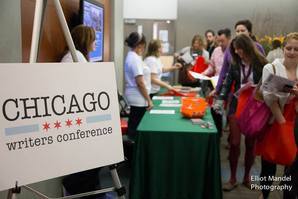 With the end of summer comes a renewed interest in getting back to work.
With the end of summer comes a renewed interest in getting back to work.For a writer, the work never really ends, but aside from focusing on getting your ideas out of your head and onto paper, getting your manuscript into the hands of people who will publish it entails a great deal of effort - as well as knowledge, preparation, and encouragement.
Fortunately, there are many conferences this coming month that will accomplish just that, as well as enabling you to get connected with the larger writing community. (Speaking of getting connected - check out Dragon Con. Even if sci-fi is not your genre, this conference sounds like a hoot!)
___________________
DragonCon, Sept. 4–7, Atlanta, Ga. HUGE sci-fi event, with parade, autograph sessions, live performances, readings, wrestling (!), workshops on belly dancing, writing (yes, there's even some writing), art show.
Kentucky Women Writers Conference, Sept. 11–12, Lexington, Ky.The Kentucky Women Writers Conference is the longest running literary festival of women in the nation. Presenters: Angela Ball, Bianca Bargo, Ann Beattie, Martha Billips, Emily Bingham, Meghan Daum, Kathleen Driskell, Joy Harris, Allison Joseph, Carson Kreitzer, Jessica Helen Lopez, Hannah Pittard, Sonia Sanchez, Jacinda Townsend. Numerous workshops.
Rocky Mountain Fiction Writers Colorado Gold Conference, Sept. 11- 13, Westminster, CO. Keynote Speakers: Jeffery Deaver and Desiree Holt. Faculty includes a wide variety of published authors, marketers, editors, and agents. Opportunities to pitch projects to agents and editors.
San Francisco Writing for Change, Sept 12, San Francisco, CA. This event is for writers of nonfiction AND fiction who want to change the world for the better through their work.
Light Your Fuse Creativity Retreat, Sept 12, Bethlehem, PA. Writing workshop. "The event will focus on craft and motivation, and after our fabulous speakers do their thing, there will be brainstorming and writing sessions in a supportive, casual, and fun environment."
Slice Literary Writers’ Conference, Sept 12 - 13, Brooklyn, NY. craft workshops, panels, and one-on-one agent meetings for poets, fiction writers, and nonfiction writers. Participating writers include fiction writers Ben Greenman, Julia Fierro, Bret Anthony Johnston, and Nicole Krauss; and creative nonfiction writers Leslie Jamison and Rebecca Mead. Participating publishing professionals include Sarah Bowlin (Henry Holt), Katie Freeman (Riverhead/Penguin), Brigid Hughes (A Public Space), Maris Kreizman (Kickstarter), Vanessa Mobley (Little, Brown), Benjamin Samuel (National Book Foundation), and Rob Spillman (Tin House); and agents Michelle Brower (Folio Literary Management), Lisa DiMona (Writers House), Kirby Kim (Janklow & Nesbit), Stephanie Kip Rostan (Levine Greenberg Rostan Literary Agency), and Renée Zuckerbrot (Renée Zuckerbrot Literary Agency).
New York Pitch Conference, Sept 17 - 20, 2015, New York NY. Features publishing house editors from major houses such as Penguin, Random House, St. Martins, Harper Collins, Tor and Del Rey, Kensington Books and many more who are looking for new novels in a variety of genres, as well as narrative non-fiction. The event focuses on the art of the novel pitch as the best method not only for communicating your work, but for having you and your work taken seriously by industry professionals.Workshops, homework & pitch training, agent/editor feedback, market study, publication plan.
THE MAGIC OF 13 - SCBWI: Northern Ohio 13th Annual Conference, Sept 18 - 19, Cleveland, OH. Hosted by the Society of Children's Book Writers and Illustrators, Northern Ohio. Faculty: Nikki Garcia (Little Brown Books); Loraine Joyner (Peachtree); Maria Lamba (Jennifer De Chiara); Kendra Levin (Viking's Children's Books/Penguin Young Readers); Jodel Sadler (Sadler Literary); Vicki Selvaggio (Jennifer De Chiara) and many authors.
North Coast Redwoods Writers' Conference. Sept 18 - 19, Crescent City, CA. Workshops on writing, poetry, memoir, editing, social media, marketing, fiction, submitting.
Brooklyn Book Festival, September 20, Brooklyn, NY. Readings, panels, workshops, and a book fair. Participants include poets Elizabeth Alexander, Tina Chang, Colin Channer, Nick Flynn, Saeed Jones, Gregory Pardlo, and Tracy K. Smith; fiction writers Daniel Alarcón, Carmiel Banasky, Paul Beatty, Edwidge Danticat, Andre Dubus III, Angela Flournoy, Ann Hood, Phil Klay, László Krasznahorkai, Joyce Carol Oates, Francine Prose, Salman Rushdie, and Laura van den Berg; and creative nonfiction writers Kate Bolick, Sloane Crosley, Geoff Dyer, Vivian Gornick, and Jon Ronson. All events are free and open to the public.
The Florida Heritage Book Festival & Writers Conference, Sept 24 - 26, St. Augustine FL. Faculty includes Vicki Hendricks, Elizabeth Sims, John Dufresne, Laura Lee Smith, and more. Book Festival authors include Mary Kay Andrews, Lisa Black, John Dufresne, Scott Eyman, Jon Jefferson, Connie Mae Fowler and many more.
Be a Better Freelancer - Take it to the 10th! Sept 25 - 26, Rochester NY. Annual conference for freelance writers, editors, proofreaders, indexers, graphic artists, website managers and developers, etc., with presenters offering guidance and tips on marketing, promotions, new skills and other business aspects of freelancing. Focus: Nonfiction.
Chicago Writers Conference, September 25 - 27, 2015, Chicago, Ill. Join other writers, editors, publishers and agents for a weekend of learning and fun! Panels, pitch sessions, and educational talks, along with a Friday night kick-off party. Sessions on publishing, self-publishing, how to pitch, craft of YA, meet the publishers, websites, nonfiction, and many more.
Creatures, Crimes & Creativity, September 25 - 27, Hunt Valley, MD. A writer's and fan's conference for genre fiction covering mystery, suspense, thriller, sci-fi, fantasy, steampunk & horror.
SF:SE 2015, September 25 - 27, Orlando, FL. Focus: Speculative fiction. Workshops, panels and editor one-on-ones, together with convention debauchery like werewolf LARPing, masquerade balls and a tattoo gallery. All events to be shared with authorial greats like Orson Scott Card, Jacqueline Carey, Peter V. Brett, Kelley Armstrong, and industry icons.
A Weekend For Words: 13th Annual Southern California Writers’ Conference, September 25 - 27, 2015, Irvine, CA. "Having facilitated some $4 million worth of first-time authors’ book and screen deals since 1986, the SCWC remains devoted to writers of all levels working to become both exceptional authors and modern, entrepreneurial self-advocates. Through our uniquely tailored, inclusive programs the SCWC empowers writers with the vital recognition, encouragement and understanding to better succeed in today’s ever-changing transmedia marketplace." Limited to 150 participants.
LiTFUSE Poets’ Workshop. September 25 - 27, Tieton, WA. Faculty includes poets Elizabeth Austen, Ellen Bass, Sally Green, Sam Green, Tara Hardy, Christopher Howell, Talena Lachelle Queen, David Schein, Derek Sheffield, and Chad Sweeney.
Rom Com: Reader Weekend/University. September 25-27, Denver, Colorado. 60+ Authors of all genres of romance - Contemporary, Erotic, Historical, Inspirational, Sci-Fi, Paranormal, & Suspense. 20 Author-led games and events- Interact with authors. 10+ Intimate Chats.
Colrain Poetry Manuscript Conference. September 25 - 28, Whidbey Island, WA. Evaluation and discussion of book-length and chapbook-length manuscripts with poets, editors, and publishers. The faculty includes poets Joan Houlihan and Fred Marchant; and editors Rusty Morrison of Omnidawn Publishing, Martha Rhodes of Four Way Books, and Jeff Shotts of Graywolf Press.
9th Annual Chattahoochee Valley Writers Conference, Sept 26, Columbus, GA, "Whether you write prose or poetry you can explore capturing thoughts, observations, and reflections with the written word. The sessions will be criticism free. You will be exposed to various writers and their styles, and work on editing, polishing and expanding writings into something that is reflective of your personality and talents. You should leave with a piece of original work and a sense of writing as an avenue to discovering self."
2015 Flathead River Writers Conference, Sep 26 - 27, Kalispell, MT. Faculty: Margie Lawson, James W. Hall, Keith McCafferty, agents Annie Hwang (Folio) and Kerri Buckley (Carina).
Chanticleer Authors Conference 2015, September 26 - 29, Bellingham WA. This conference is about increasing books sales and the business side of writing: Book Marketing, Branding, Promotion, Distribution,New Publishing Avenues and Social Media Mastery for Authors. Faculty: Harvey Chute of KBoards, Kiffer Brown of Chanticleer Reviews, Pamela Beason, Bennett Coles Promontory Press, Elizabeth DiMarco, Rochelle Parry, Wendy Delaney, Wendy DeWar Hughes, Robert Dugoni, Karen Brown, and others.
Published on August 25, 2015 06:21
August 20, 2015
20 Writing Contests in September - No Entry Fees
 There are a lot of great contests coming up in September, some with hefty prizes.
There are a lot of great contests coming up in September, some with hefty prizes.The Sunday Times is offering £30,000.00 for a winning short story. Published books can win £10,000.00 and $35,000 in two of these contests, and there are also substantial prizes for short works.
The Silver Linings contest is giving $2000, and Life Lessons is awarding $3,000 for personal essays. There are also prizes for poetry, fiction, and non-fiction.
Good luck!
____________________
Good Housekeeping "Silver Linings" Contest. "Tell us about a time when a wrong turn took you to the right place or you found unexpected happiness at the end of a long road." Restrictions: Open to anyone age 21 or older who is a legal resident of the United States, the District of Columbia, or Canada (excluding Quebec). Genre: Story of 1,500 to 2,500 words. Prize: $2000. Deadline: September 1, 2015. Read more details here.
Helen Schaible International Shakespearean / Petrarchan Sonnet Contest. Genre: Poetry. Prize: First Prize $50. Second Prize $35. Third Prize $15. Deadline: September 1, 2015. Read more details here.
Hudson Review Short Story Contest. Genre: Short stories 10,000 words and under. Prize: First prize is $500, second and third are $250 each. Deadline: September 1, 2015. Read more details here.
Payton James Freeman Essay Prize is sponsored by the Freeman Family and the Drake University Department of English. Restrictions: Open to U.S. citizens or permanent residents. Prize: $500 and publication in The Rumpus magazine. Genre: Unpublished non-fiction essay of up to 3500 words on the subject: THE STUPID LITTLE THING THAT SAVED ME. Deadline: September 1, 2015. Read more details here.
Jerwood Awards for Nonfiction. Sponsored by Royal Society of Literature. Restrictions: UK and Irish citizens and those who have been resident in the UK for the past three years are all eligible. Genre: Open to writers engaged on their first commissioned works of non-fiction. Prize: £10,000.00 and two awards of 5,000 pounds each. Deadline: September 7, 2015. Read more details here.
Barnes & Noble Discover Great New Writers Program. Restrictions: Publishers recommend writers making a strong literary debut. Authors cannot submit their own work to the program; self-published writers and titles published via print-on-demand or available only as NOOK books are also ineligible for submission. Genres: Literary fiction, short story collections and literary non-fiction, such as travel essays, memoirs, or other non-fiction with a strong narrative will be considered. Books should be intended for an adult or a young adult audience. Prize: $35,000 to six writers. Deadline: September 10, 2015. Read more details here.
Princemere Poetry Prize. Genre: Poetry. Prize: $300. Deadline: September 14, 2015. Read more details here.
Drake Emerging Writer Award. Restrictions: Authors must be U.S. citizens or permanent residents and must agree to attend and participate in the reading at Drake University in April 2015 to receive the award. Genre: First published book of poetry. Prize $1,000. Deadline: September 15, 2015.
Ethnographic Poetry Award. Sponsored by The Society for Humanistic Anthropology. Genre: Poetry associated with any of the five fields of anthropology: Archaeological, Biological, Linguistic, Sociocultural and Applied. Prize $100. Deadline: September 15, 2015. Read more details here.
Past Loves Day Story Contest. Genre: Personal essay. Nearly everyone has memories of a former sweetheart. Write your true story of an earlier love, in no more than 700 words. Tell us about someone whose memory brings a smile or a tear, or both. Prize: First Prize: $100; Second Prize: $75; Third Prize: $50. Deadline: September 17, 2015. Read more details here.
Life Lessons Essay Contest. Restrictions: Open to legal residents of the 50 United States and the District of Columbia, age 19 or older at time of entry. Genre: Personal essay. Would your world now be completely different—even unthinkable—if, at some point in the past, you hadn’t made a seemingly random choice? Tell us about it. Prize: $3,000. Deadline: September 21, 2015. Read more details here.
Sunday Times EFG Short Story Award. Restrictions: Open to authors from anywhere in the world, as long as they have a previous record of publication in creative writing in the UK and Ireland. Stories must be previously unpublished, or first published after 1 January 2015. Genre: Short story. All entries must be 6,000 words or under and entirely original. Prize: £30,000.00. Deadline: September 24, 2015. Read more details here.
L. Ron Hubbard’s Writers of the Future Contest is held four times a year. Restrictions: The Contest is open only to those who have not professionally published a novel or short novel, or more than one novelette, or more than three short stories, in any medium. Professional publication is deemed to be payment of at least six cents per word, and at least 5,000 copies, or 5,000 hits. Genre: Short stories or novelettes of science fiction or fantasy. Prizes: $1,000, $750, $500, Annual Grand Prize: $5,000. Deadline: September 30, 2014. Read more details here.
Lee & Low Books New Voices Award is sponsored by Lee &Low Publishers. Restrictions: The contest is open to writers of color who are residents of the United States and who have not previously had a children’s picture book published. Genre: Children's books - fiction, nonfiction or poetry. Prize: $1,000. Deadline: September 30, 2015. Read more details here.
Authors First Writing Contest is sponsored by Authors First, located at P.O. Box 4331, Stamford, Connecticut 06907. Restrictions: The contest is open to international submissions from aspiring writers anywhere in the world. However, if the novel or story has been published in any form (including any self-publishing outlets), then it is ineligible for entry in the Contest. Genres: Novels of at least 40,000 words and short stories less than 20,000 words. Prize: Novels: Publishing contract with The Story Plant, $5,000, An iPad Mini, One year’s supply of books from The Story Plant. Short stories: A contract to publish the story in the Authors First anthology (to be published by The Story Plant) with a pro-rated share of royalties. Deadline: September 30, 2015. Read more details here.
Eric Hoffer Award for Short Prose. Restrictions: The contest is open to everyone. Genre: Works of short prose less than 10,000 words, previously unpublished, or published with a circulation of less than 500. Prize: $250. Deadline: September 30, 2015. Read more details here.
Intergeneration Short Storytelling Contest. Restrictions: The contest is open to everyone. Genre: Stories must be original, unpublished, and include at least two generations. Stories may not exceed 300 words (not including title). Prize: $100. Deadline: September 30, 2015. Read more details here.
Iowa Short Fiction and John Simmons Short Fiction Awards. Genre: Short story collection. The manuscript must be a collection of short stories in English of at least 150 word-processed, double-spaced pages. Prize: Publication by the University of Iowa Press, royalties. Deadline: September 30, 2015. Read more details here.
Jerry Jazz Musician Fiction Contest. Genre: Short fiction. Prize: $100. Deadline: September 30, 2015. Read more details here.
Student Travel Writing Contest. Restrictions: Open to currently enrolled undergraduate and graduate students, students who have graduated within the past year, and students currently on leave from school. Genre: Personal essay about living/working abroad. Prize: 1st Place: $500; 2nd Place: $150; 3rd Place: $100; Runner-up: $50. Deadline: September 30, 2015. Read more details here.
Published on August 20, 2015 07:55
August 18, 2015
6 Calls for Submissions: Speculative Fiction, Essays, Poetry
 Here are six calls for submissions with deadlines coming up at the end of the month.
Here are six calls for submissions with deadlines coming up at the end of the month.Not all of of these publications offer payment, but note that RHINO nominates winning poems for a Pushcart Prize and The Collagist prints excerpts from forthcoming novels (especially if you are publishing a novel with an Indie press).
__________________
Qu – Qu is a literary magazine sponsored by the MFA Department of Queens University of Charlotte. Genres: Fiction, essay or script excerpt under 8,000 words, or three poems. Payment: Prose $100; poetry $50. Deadline: August 31.
RHINO – RHINO is looking for previously unpublished poetry, translations and flash fiction. Genres: Submit three to five poems, three to five translations of poems, or flash fiction under 500 words. Payment: None, but all poems are considered for the Editors’ Prize, which offers cash awards for the top three submissions of the year. The First Place winner will be nominated for a Pushcart Prize. Deadline: August 31.
The Collagist – The Collagist is a monthly journal associated with Dzanc Press. Each issue contains short fiction, poetry, essays, book reviews, and one or more excerpts from novels forthcoming from (mostly) independent presses. Genres: Stories, essays, novellas, one to three short-shorts, or one to three poems, but only submit twice during each reading period. Payment: None, but if you have a novel that is due to be published in the next three months, The Collagist publishes an excerpt in each issue. Deadline: August 31.
Crossed Genres – Pronouns & Genders. Genre: Speculative fiction. "We want stories that feature, examine, explore, and celebrate the many and varied human genders; and stories that explore the ways in which pronouns are used to acknowledge, accept, oppress and deny gender. [NOTE: We’re looking for stories about humans. No shapeshifters or robots, please.]" Payment: 6 cents a word. This is a SFWA Qualifying Market. Deadline: August 31.
Eat, Pray, Love Made Me Do It – This anthology is a compilation of personal essays inspired by Elizabeth Gilbert's book. Genre: Essay of no more than 1500 words. Payment: $50. Deadline: August 31.
The Myriad Carnival – An anthology of ‘queer, weird and dark’ stories themed around carnivals. LGBT. Payment: $40/£24, plus 2 x copies of the anthology. Reprints accepted. Deadline: August 31.
Published on August 18, 2015 03:55



